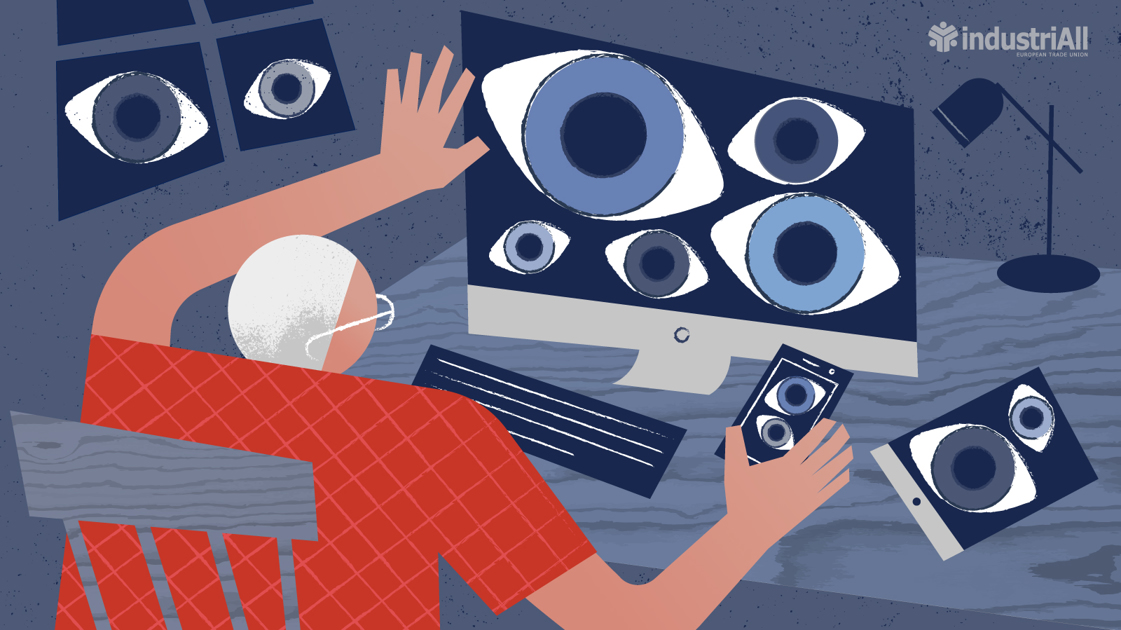Working remotely cannot be an excuse to control workers beyond what is justified and beyond the limits of human dignity. Working remotely should be an opportunity to create new work relationships based on trust, in full respect of work regulations.
The pandemic has led to a massive push towards telework and has also increased the use of workers’ surveillance technology. More and more companies are using different digital software to monitor employee activity and performance. Very often, workers are unaware that they are being monitored because the installation of the software is presented as a regular update. Often workers do not know which personal data is collected, how it is used and with whom it is shared.
Surveillance and AI: How does the technology work?
Surveillance technologies go hand in hand with artificial intelligence (AI). The technology used to track, gather and evaluate workers is based on different algorithms. Workers and their representatives need to know what the algorithm is measuring and what it is evaluating.
For example, some algorithms measure productivity by tracking the time workers spend at their desk or how much they type. Others even go as far as tracking the GPS coordinates of their employees and taking pictures with computer cameras. Managers then receive a ranking of the most productive workers based on random indicators (like how much a worker types), that indicate nothing about a worker’s true performance and productivity.
Effects on Workers
Excessive surveillance can have extremely negative effects on workers’ wellbeing, mental health and autonomy. It can lead to job intensification, increased competition with other colleagues, high levels of stress, anxiety, demotivation, as well as low self-esteem.
Surveillance technologies have the capacity to evaluate workers by rating them and even discipline workers in cases where algorithms lead to a direct dismissal or reward. They can also profile workers based on personal data and end up taking decisions on their behalf.
Respect workers’ privacy, autonomy and human dignity
This situation raises serious questions regarding workers’ health and safety, privacy, autonomy and respect of human dignity.
As trade unions, we demand the strict protection of workers’ personal data and privacy in compliance with the GDPR. We request that the boundaries between private and working life are respected through the right to disconnect. Workers and their representatives must be informed about employee-related data that is collected and the reasons for it. The algorithms used must be fully justifiable and fair.
The EU Social Partner’s Agreement on Digitalisation provides the necessary tools for workers and their union representatives to take (back) control of workers’ private data and to ensure their autonomy. This Agreement must now be implemented at national level by the social partners.
Isabelle Barthès, industriAll Europe’s Deputy Secretary General:
“Working remotely cannot be an excuse to control workers beyond what is justified and beyond the limits of human dignity. Working remotely should be an opportunity to create new work relationships based on trust, in full respect of work regulations. This should be properly framed through collective agreements that focus on the development of confidentiality and security policies. The EU Social Partner Agreement on Digitalisation provides a good starting point for this.”
Contact: Andrea Husen-Bradley (press and communication), Patricia Velicu (policy adviser)
